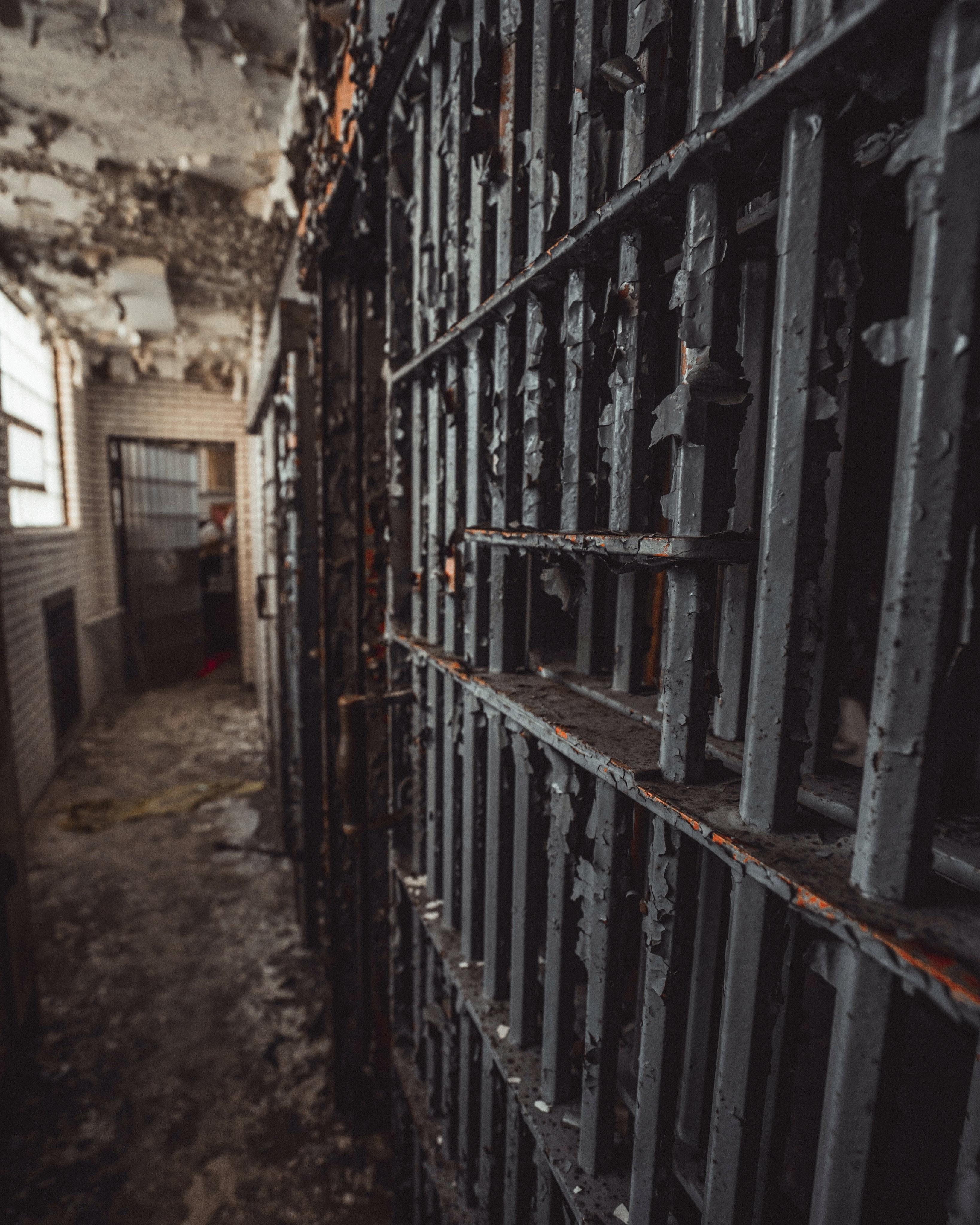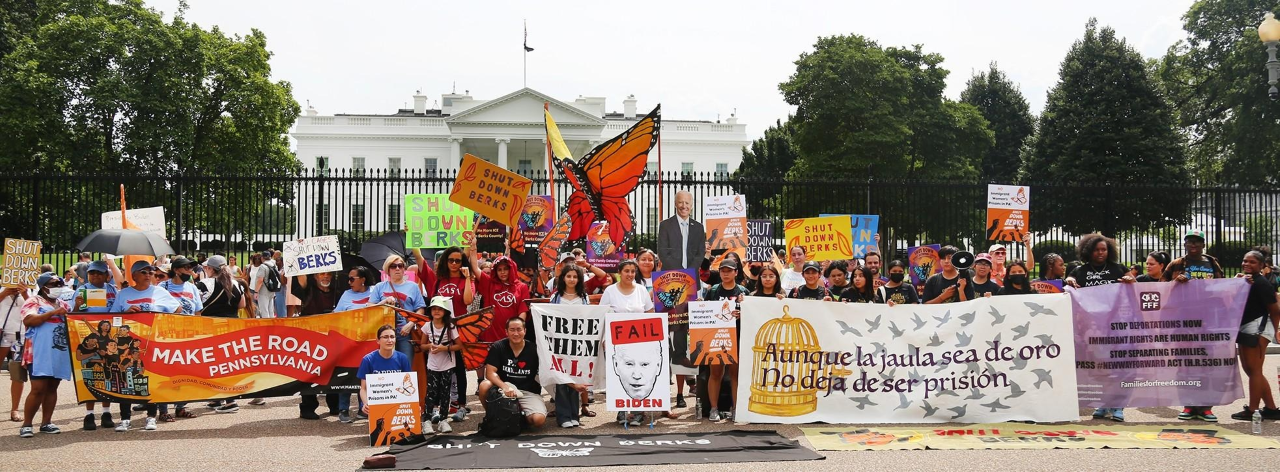The Philadelphia Inquirer reported on Wednesday, Nov. 30, that the federal government would end its contract with the Berks County Detention Center.
Located in Leesport, Pennsylvania, the Berks County Detention Center was one of the few facilities immigrants are taken to after crossing the U.S. border. The facility claimed it was “committed to maintaining a safe and caring environment that promotes positive growth and behaviors through competent counselors who display professional spirit.”
Dr. Nune Grigoryan, assistant communications professor and interim director of the Center on Immigration at Cabrini University, said, “My first feeling was excitement because this fight has been going on for eight years … but it also is mixed with skepticism because previously it has been said that they’ll be closing and then it became a female-immigrants-only detention center.”
Infamous for mistreating immigrants
The Berks County detention center opened in 2001, and over the years, has been infamous for mistreating immigrants, particularly female immigrants.
“This space has been used as a prison for families, including infants and toddlers, and now women, for at least 20 years,” said Adrianna Torres-García, deputy director of the Free Migration Project and member of the Shut Down Berks Coalition.

Earlier this year, the facility became a center solely for women immigrants, increasing the risk of women experiencing further mistreatment. According to WHYY, back in 2010, multiple women alleged they were sexually abused at the T. Don Hutto Detention Center in Texas. In Dec. 2021, at least 40 women alleged in federal court they were abused by gynecologists at the Irwin County Detention Center in Georgia.
“We need to make sure that when it closes, the women are freed and they’re not transferred to another center,” Grigoryan said.
Benefits and challenges
An immigration prison closing gives immigrants currently living and immigrating to the United States a sense of “freedom and going back to the community,” Grigoryan said.
Torres-García agreed, “The fact that we have demonstrated that organizing works and that collectively we have the power to shut down a prison is a big advantage to the immigrant community. It’s inspiring to know that speaking up, challenging the powers that be, and organizing pays off.”

There have been no other recent news on the closures of other detention centers in the United States. The women who were imprisoned in Berks, may be relocated to another prison.
“Instead of freeing and releasing everyone, the government decides, ‘Oh, we’re going to shut down Berks, but we’re going to move [immigrants] to another detention center,” Grigoryan said.
“That would be a complete disaster. But if they’re all released, that would be the final goal.”
Torres-Garcia said, “While there are groups and campaigns to shut down those prisons as well, the threat of immigrant detention still looms large. Our fight will be over when the U.S. stops imprisoning people, especially Black and Brown people for wanting to move, for wanting to migrate, something that is so basic for human societies throughout history.”
This is not the end
“The closing of the immigrant prison at Berks is the highlight of my short but intense career and the best news I could have received at this time of the year,” Torres-García said.
“We’ll continue the fight until everyone is freed and the detention center becomes a community center,” Grigoryan said.
The closure of the Berks County Detention Center sends a message to the nation on how important community and equality is. Organizations like the Free Migration Project and Shut Down Berks Coalition, continuously work to end the imprisonment of immigrants and their separation from society.
Of course, as Torres-García asserts, “This is not the end of this fight.” She continued to say women who are currently incarcerated at Berks will be released to freedom, for the center will become a place used for health and human services for Berks County community members.
“It has been a long eight-year campaign where many people,” Torres-García said. “Most importantly those who have directly suffered imprisonment at Berks, have organized and lifted up their voices against the shameful practice of imprisoning immigrants. As a prison abolitionist, I think it’s a great thing that Berks is closing!”




I used to want to immigrate very much, but immigrant will encounter various difficulties and may be imprisoned. In view of this, I temporarily dismissed the idea of emigration.
Social psychologists have spent decades focusing on the effects of “institutionalization”. In
other words, how negative closed surroundings such as mental hospitals, prisons and
nursing homes exacerbate a person’s feelings of depression, hopelessness, and of course,
reduces feelings of pride and “self-esteem”. In 1990 Phil. State Hospital at Byberry was closed
down. But 20 years prior in the late 60s and early 70s several professionals, including myself, working (with an NIMH grant) designed a release program for the “chronically psychotic”. In effect we
agreed with most of the experts and community leaders that assumed that “crazy” places make
people “crazy”. Just release the “institutionalized” back into the community and their conditions
would improve. Yes we did have sessions “teaching” adaptive behaviors including keeping
appointments, wearing a watch, choosing appropriate clothing etc. We paid homeowners in
the community to be like “foster parents”. Simply put, it didn’t work. Previous patients got lost
or “enablers” threw them out of their homes…they couldn’t get or hold jobs etc. In conclusion,
de-institutionalization, in effect, is based on an optimistic belief that social environments can create
either healthy or dysfunctional persons. Oh were it that clear cut. Just as some good neighborhoods
still have some problem neighbors so we have to admit that there are individual psychological
pathologies that can perpetuate regardless of one’s surroundings.
Vicki Abt Ph.D. Professor of Sociology Penn State Abington (ret.)